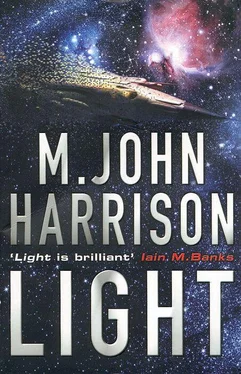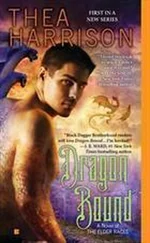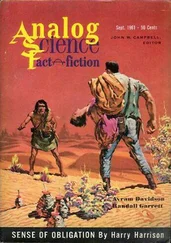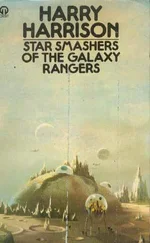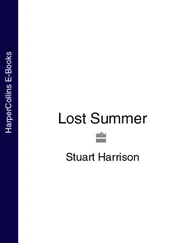'You got a point there,' Ed told her. She smiled at him, stepped on the butt of her cigarette, and went back to her car. Ed turned on the radio. The Russians hadn't landed. The Martians hadn't landed. There was no news at all.
'So. This Brady thing,' he said to Rita. 'What are they saying in the DA's office?'
'Hey, Eddy,' Rita said. She looked at him for a moment or two, then shook her head and turned back to the mirror. She had her lipstick out now. 'I thought you'd never ask,' she said in a matter-of-fact voice. The lipstick didn't seem to suit her, because she put it away with an irritable gesture and looked out the window at the river running by.
'I thought you'd never ask,' she repeated bitterly.
That was when the big yellow duck started to push its head into the car through Ed's open side-window. This time, Rita didn't seem tonotice it, even though it was speaking.
'Come in, Number Seven,' it was saying. 'Your time is up.'
Ed reached inside his baseball jacket, the back of which read Lungers 8-ball Superstox, and took out one of his Colts.
'Hey,' the duck said. 'I'm joking. Just a reminder. You got eleven minutes' credit to run before this facility closes down. Ed, as a valued customer of our organisation, you can put more money in or you can make the most of what's left.'
The duck cocked its head on one side and looked at Rita out of one beady eye.
'I know which I'd do,' it said.
When Michael Kearney woke it was deep night outside. The lights were off. He could hear someone breathing harshly in the room.
'Who's there?' he said sharply. 'Lizzie?'
The noise stopped.
A single minimally furnished space with straw-coloured hardwood floors, galley kitchen, and a bedroom on the second floor, the apartment belonged to his second wife Elizabeth, who had moved back to the US at the end of the marriage. From its upper windows you could see across Chiswick Eyot to Castelnau. Rubbing his face, Kearney got out of the armchair and went upstairs. It was empty up there, with a drench of streetlight across the disordered bed and a faint smell of Elizabeth's clothes which had remained to haunt him after she left. He went back down again and switched on the lights. A disembodied head was balanced on the back of the Heals sofa. It was wasted and ill-looking. All the flesh had retreated to the salient points of its face, leaving the bone structure prominent and bare beneath a greyish skin. He wasn't sure what it belonged to, or even what sex it was. As soon as it saw him it began swallowing and wetting its mouth urgently, as if it hadn't enough saliva to speak.
'I can't begin to describe the grudgingness of my life!' it shouted suddenly. 'Ever feel that, Kearney? Ever feel your life is threadbare? Ever feel it's like this worn-out curtain which barely hides all the rage, the jealousy, the sense of failure, all those self-devouring ambitions and appetites that have never dared show themselves?'
'For God's sake,' Kearney said, backing away.
The head smiled contemptuously.
'It was a cheap enough curtain in the first place. Isn't that what you feel? Just like the ones at these windows, made of some nasty orange stuff with a fur of age on it the day after it was hung.'
Kearney tried to speak, but found that his own mouth had dried up.
Eventually he said: 'Elizabeth never hung curtains.'
The head licked its lips. 'Well let me tell you something, Kearney: it didn't hide you anyway! Behind it that horrible thin body of yours has been writhing and posturing for forty-odd years, laughing and making faces (oh yes, making faeces, Kearney!), shaking its huge Beardsleyesque cock about, anything to be noticed. Anything to be acknowledged. But you won't look, will you? Because pull that curtain back once and you'd be burned to a crisp by the sheer repressed energy of it.'
The head gazed exhaustedly around. After a moment or two it said in a quieter voice:
'Ever feel like that, Kearney?'
Kearney considered.
'No.'
Valentine Sprake's face seemed to fluoresce palely from within. 'No?' he said. 'Oh well.'
He got up and came out from behind the sofa where he hid been crouching, an energetic-looking man perhaps fifty years old, with stooped shoulders, sandy orange hair and a goatee beard. His colourless eyes were wilful and absent-minded at the same time. He had on a brown fleece jacket too long for him, tight old Levis which made his thighs look thin and bandy, Merrell trail boots. He smelled of rolling tobacco and generic whisky. In one hand-its knuckles enlarged by years of work or illness-he held a book. He looked down at it in a startled way, then offered it to Kearney.
'Look at this.'
'I don't want it.' Kearney backed away. 'I don't want it.'
'More fool you,' said Valentine Sprake. 'I got it off the shelf there.' He tore out two or three pages of the volume-which, Kearney now saw, was Elizabeth's beloved thirty-year-old Penguin Classics edition of Madame Bovary- and began stuffing them in different pockets of his coat. 'I can't be bothered with people who don't know their own minds.'
'What do you want from me?'
Sprake shrugged. 'You phoned me,' he said. 'As I heard it.'
'No,' said Kearney. 'I got some sort of answer service, but I didn't leave a message.'
Sprake laughed.
'Oh yes you did. Alice remembered you. Alice quite fancies you.' He rubbed his hands busily. 'How about a cup of tea?'
'I'm not even sure you're here,' Kearney said, looking anxiously at the sofa. 'Did you understand anything you were saying over there?' Then he said: 'It's caught up with me again. In the Midlands, two days ago. I thought you might know what to do.'
Sprake shrugged.
'You already know what to do,' he suggested.
'I'm sick of doing it, Valentine.'
'You'd better get out, then. I doubt you'll finish with a whole skin whatever you do.'
'It doesn't work any more. I don't know if it ever worked.'
Sprake gave him a small colourless smile. 'Oh, it works,' he said. 'You're just a wanker.' He held up one hand in the pretence that Kearney might take offence. 'Only joking. Only joking.' He kept smiling for a moment or two, then added: 'Mind if I roll a cigarette?' On the inside of his left wrist he had a home-made tattoo, the word FUGA, in faded blue-black ink. Kearney shrugged and went into the galley. While Kearney made the tea Sprake strode about smoking nervously and picking pieces of tobacco off his bottom lip. He switched the lights off, and waited with a satisfied air for the apartment to fill with streetlight instead.
At one point he said, 'The Gnostics were wrong, you know.' Then, when Kearney didn't reply:
'There's a mist coming up over the river.'
After that there was quite a long pause. Kearney heard two or three small movements, as of someone removing a book from a shelf; then an intake of breath. 'Listen to this-' Sprake began, but fell silent immediately. When Kearney came out of the kitchen, the street door was open and the apartment was empty. Two or three books lay on the floor, surrounded by torn-out pages which looked like wings. On to the empty white wall above the sofa, in a bright parallelogram of sodium light, something outside was projecting the shadow of an enormous beaked head. It looked nothing like the head of a bird. 'Christ,' said Kearney, his heart beating so hard he could feel it rocking his upper body. 'Christ!' The shadow began to turn, as if its owner, hanging in the air two storeys above a street in Chiswick, two in the morning, was turning to look at him. Orworse, as if it wasn't a shadow at all.
'Jesus Christ, Sprake, it's here!' Kearney shouted, and ran out of the apartment. He could hear Sprake's footsteps thudding on the pavement somewhere ahead of him; but he never caught him up.
Читать дальше
